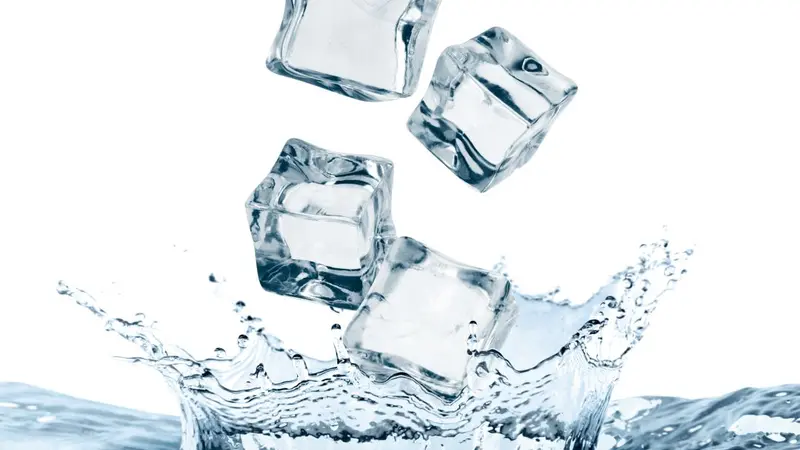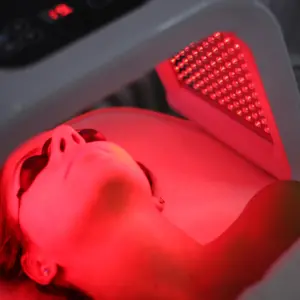

Sponsored
Sponsored
Cold Plunge: Boost Your Immune System, Recover Faster, and Feel Happier
Did you know that cold-water immersion and cold plunging have been around for centuries? This ancient practice has been used not only to improve overall health, but also to increase performance in athletes. Exploring the history of cold plunging and cold-water immersion will reveal how it has evolved over the years… as well as the benefits you can enjoy from the comfort of your home!
The practice of cold-water immersion can be traced back to Ancient Greece, where it was believed that the healing power of cold springs could help treat a variety of ailments. From there, the practice made its way to Russia, where it was commonly used by ski jumpers as a form of cryotherapy to help relieve sore muscles before competitions.
In the early 20th century, Swedish physician Per Henrik Ling developed hydrotherapy treatments for patients with joint pain and fatigue. His methods incorporated shower baths (hot then cold) and eventually led to the creation of cold plunge pools at his own Swedish hospital. Since then, hydrotherapy has become more widely accepted as an effective form of treatment for various conditions such as rheumatism and arthritis.
More recently, modern science has revealed additional benefits to frequent exposure to chilly temperatures such as weight loss, improved mood, increased energy levels, and a boosted immune system. Today, many spas offer plunge pools or ice baths as part of their services while some people even use homemade contraptions (such as coolers filled with icy water) to take regular dips into icy temperatures within their own homes.
Cold plunging and cold-water immersions have come a long way since their introduction centuries ago and are now widely accepted forms of therapy used by medical professionals around the world. Whether you’re trying to alleviate pain from injury or just looking for an extra boost in your daily life- taking the plunge into frigid waters may just be the answer.
The health benefits of cold plunging and cold-water immersion have been well-documented in recent years. Researchers have found that taking a plunge in icy waters can help boost immunity, improve mood, reduce inflammation, and even regulate hormones. Here are ten research-based benefits of cold plunging and cold-water immersion:
1. Improved Immunity: Immune health is an important part of overall well-being, and regular cold-water immersion can be an effective way to support immunity. Studies have shown that by exposing the body to frigid temperatures, levels of white blood cells and cytokines are increased — allowing us to fight off infection and disease more easily.
In addition to this, exposure to icy temperatures has been found to trigger the release of endorphins, natural hormones responsible for feelings of pleasure and joy. Endorphins also help reduce stress hormones such as cortisol which can lead to depressed or anxious states if left unchecked. In some studies, cold showers are used as a therapy to support against depression. Furthermore, frequent immersions into cold-water help regulate other hormone levels within the body such as testosterone, cortisol, progesterone, and estrogen — all of which play a vital role in our overall well-being. So not only does regular cold plunging help boost our immunity but it could also help maintain essential hormonal balance.
It can boost your entire immune system, too. Studies show that regular soaking in cold-water can help stimulate the body’s immune system by increasing levels of white blood cells and cytokines, which fight against infection and disease.
2. Improved Mood: Cold-water immersion has been shown to trigger the release of endorphins, which are neurotransmitters responsible for feelings of joy, pleasure, and euphoria.
One study followed a group of healthy women for twelve weeks, plunging in very cold-water three times a week. This study examined the effects of 10 minutes of whole-body cold-water immersion (CWI) on immune function, inflammation, and physiological parameters. The results showed that CWI resulted in improved immune response and reduced inflammation, as well as lower heart rate, blood pressure, and respiratory rate. Additionally, improvements were seen in physical performance after the CWI session had ended. Overall, this study demonstrated the potential benefits of CWI for improving health and physical performance.
Cold-water immersion has also been found to have a positive effect on mood. Studies have shown that individuals who partake in regular plunging may experience an improved sense of well-being and mood because of the endorphin release as well as an increase in dopamine levels. Dopamine is responsible for regulating pleasure, motivation, and reward systems within our body — all of which can be easily disrupted by stress and depression. CWI is also used with breathing and stress-reduction exercises to enhance overall body-mind health.
In addition to this, regular cold-water immersions can help reduce stress hormones such as cortisol, allowing us to feel calmer and more relaxed — even in pregnancy. This helps reduce the likelihood of developing anxiety or depression over time while increasing feelings of optimism and self-worth. Furthermore, immersing yourself in icy temperatures can also increase resilience against negative thought patterns, allowing us to stay focused on the present moment instead of getting caught up in worry or fear. By taking part in cold plunging regularly, we can reap the benefits of improved mental health.
3. Reduced Inflammation: Cold plunges or swims may also help reduce inflammation in the body, which is often an underlying factor in many chronic illnesses. Cold-water immersion is known to reduce inflammation in the body. Studies have shown that frequent exposure to frigid temperatures can help reduce inflammation caused by injuries and other medical conditions. This is because cold temperatures promote vasoconstriction which helps minimize swelling, pain, and soreness in the area of injury or inflammation.
In addition to this, cold-water immersions may also help improve blood circulation which can help reduce the further accumulation of toxins and waste products in the body that often lead to inflammation. The activation of our cardiovascular system during cold therapy helps transport oxygen more efficiently throughout our body- aiding in tissue repair and the healing process. Other benefits associated with improved blood flow include better brain functioning, increased energy levels, decreased muscle soreness, and improved digestion — all of which can ultimately reduce any existing inflammation or discomfort we may be feeling.
4. Improved Cardiovascular Health: Research has found that regular exposure to cold temperatures may help improve circulation while strengthening your heart muscle and arteries. Cold-water immersion has been found to improve cardiovascular health. By exposing the body to cold temperatures, our blood vessels constrict and increase resistance which helps strengthen them over time. This can help support a healthy body against heart disease, stroke, or other forms of cardiovascular risk factors by keeping our blood pressure under control. Cold-water is ever better at mediating limb blood flow reduction than whole body cryotherapy.
In addition to this, immersing yourself in colder temperatures on a regular basis may also help improve blood flow throughout the body after getting out of the water. This helps transport oxygen more efficiently and aids in preventing blockages due to clotting or build-up of waste products in the arteries, reducing any associated risks with such unhealthy conditions. Regular plunging also helps regulate heart rate, allowing us to maintain a good level of endurance while partaking in physical activities and ensuring optimal performance while doing so. Overall, cold-water immersions can help provide great benefits towards improving our overall cardiovascular health.
5. Hormonal Balance: Exposing the body to regular bouts of cold can help balance stress hormones like cortisol as well as sex hormones such as testosterone, progesterone, and estrogen. Our hypothalamus is responsible for controlling the release of hormones and it responds to cold temperatures by releasing a hormone called norepinephrine (NE). This hormone helps regulate body temperature and metabolism, which in turn can aid with weight loss as well as provide an overall feeling of alertness. In addition, NE also stimulates the release of dopamine and serotonin, two important hormones that play a role in mood, and sleep patterns.
In one study, which measured the body’s physiological responses in various water temperatures, found that cold-water immersion actually increased plasma noradrenaline by 530% and dopamine by 250%.
In another study, volleyball players were studied as they integrated cold-water immersion (CWI) into their post-training recovery. This research specifically examined the effects of CWI on muscular strength and endurance. It was found that cold plunging increases both muscular strength and muscular endurance, as well as improves recovery times from strength training. Additionally, this study showed that cold-water immersion can improve psychological functions, such as concentration and motivation. Finally, the results suggested that cold-water immersion can lead to decreased rate of perceived exertion during subsequent exercise sessions.
Because cold-water immersions are also known to increase endorphins, which are responsible for creating sensations of happiness and euphoria, we can feel more relaxed. This can help reduce stress levels and lead to greater feelings of contentment throughout the day. These hormonal changes associated with cold therapy may ultimately help improve our overall health if practiced frequently on a regular basis.
6. Weight Loss: Lowering the body temperature through frequent immersions can lead to increased metabolism helping you burn more fat while reducing appetite at the same time. Cold-water immersion has been found to help with weight loss and weight management. In particular, it activates brown fat, which is a tissue that keeps the body warm. When exposed to colder temperatures, our body responds by activating thermogenesis, a process that helps to maintain our core body temperature. This triggers the release of hormones that accelerate our metabolism which in turn helps us burn more calories even at rest.
In addition, immersing ourselves in cold temperatures can also reduce inflammation which is known to be linked with obesity and can also help burn body fat. By reducing any potential swelling or pain associated with inflamed cells, cold therapy may help reduce body fat and improve overall physical appearance. Some anecdotal evidence from frequent ice bath takers states that regular plunging may also suppress appetite as part of an overall strategy for managing weight loss goals, allowing them to keep control over their caloric intake daily for better health outcomes. Ultimately, cold-water therapy can be an effective way to aid weight loss and manage healthy weight levels.
7. Pain Relief: Taking a dip in icy waters can also provide relief from the pain associated with migraines or fibromyalgia due to its natural anti-inflammatory effects on the body’s muscles and nerves. It’s also a favorite practice amongst elite athletes. Cold-water immersion is a great way to help reduce and manage pain. When exposed to cold temperatures, our body forms a protective layer of insulation around our nerves in order to maintain its core temperature. This layer helps insulate and protect the nerve endings, preventing them from registering any sensations of pain. In addition, it's been reported that the extreme cold can cause an analgesic effect on the body, allowing us to feel less pain and discomfort during activities that would otherwise be painful without this therapy.
The therapeutic power of cold-water also has anti-inflammatory properties which can help reduce inflammation and swelling around joints or muscles while providing relief from aches and pains. The cooling sensation created by plunging into cold temperatures may also produce a “tingling” effect in the area affected by pain, causing it to relax and release tension – thus reducing discomfort significantly. Ultimately, cold-water immersion can be an effective way to aid with pain relief on a regular basis.
8. Improved Skin Health: Studies suggest that regular exposures to colder temperatures could increase skin elasticity while improving overall texture and tone due to greater collagen production within the skin cells themselves. Cold-water immersion can be great for skin health! When exposed to cold temperatures, our body produces a protective layer of insulation around our skin cells which helps strengthen and regenerate them. This barrier helps protect us from sun damage and other environmental pollutants -leading to healthier-looking skin. In addition, the increased blood flow that is prompted by plunging into cold temperatures may also help promote increased collagen production- allowing our skin to stay healthier, more vibrant, and less prone to wrinkles.
Cold-water therapy has also been known to reduce inflammation in the skin which can be incredibly beneficial for those dealing with conditions like eczema or psoriasis. By reducing any potential swelling or redness associated with inflamed cells, cold therapy can be an effective way to reduce symptoms and help achieve clearer, more even-toned skin.
9. Faster Healing Time for Injuries: Submerging your body into chilly waters triggers a phenomenon called “cold shock response” which boosts blood flow into injured areas helping them heal faster than usual. Cold-water immersion has been used as a form of therapy to help speed up the healing and recovery process. The extreme cold temperature produced by submerging in cold-water can act like an analgesic on the body, reducing pain and discomfort during activities that would otherwise be a struggle. In addition, it's been reported that the intense cold can reduce inflammation and swelling around joints or muscles significantly, leading to improved mobility, flexibility, and increased strength.
Cold-water therapy is also great for increasing the flow of oxygenated blood throughout our body, helping to improve our circulation. This increased blood flow brings along essential nutrients and vitamins which helps support our bones and muscles while also stimulating cell regeneration and repair. Ultimately, regular bouts of cold-water immersion may lead to faster healing and recovery times!
10. Increased Energy Levels: There is evidence that suggests that taking a plunge in colder temperatures can act as a natural stimulant helping you feel more energized throughout your day without having to rely on excessive amounts of caffeine or other energy drinks. Cold-water immersion can be a great way to increase energy levels. Submerging yourself in cold temperatures forces your body to work harder, causing it to burn more calories, even while you're at rest. This increased calorie burn leads to more fat burning and weight loss over time, leading to more sustained energy levels throughout the day.
As mentioned earlier, cold-water therapy has been known to stimulate endorphin production in the body which can make us feel better overall and have improved mental clarity. This rush of endorphins can improve our mood, help us stay focused, and give us an overall boost of energy that helps keep us motivated on those particularly sluggish days. Ultimately, regular cold-water immersion is a great way to kickstart your metabolism and give yourself a bit of extra energy when you need it most.
Ultimately, ice baths are a great way to introduce yourself slowly into cold plunging while being able to experience some of its amazing benefits — energy boost, increased metabolism, better sleep, and faster healing/recovery — all from the comfort of your home.




